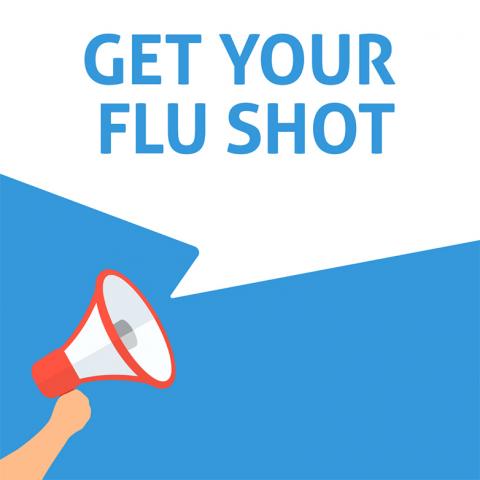New adult flu vaccines launched

The Public Health Agency (PHA) is urging all eligible people whose health could be seriously affected by flu to get the free flu vaccine. GPs across Northern Ireland are offering flu vaccination to everyone over 65, pregnant women, and people under 65 with underlying health conditions.
Last year, seasonal flu activity was the highest seen since the 2009 pandemic, with 119 cases of flu in intensive care/ high dependency units (ICU/HDU) – more than twice as many as the previous year – and a total of 22 deaths in ICU/ HDU in which a diagnosis of influenza was confirmed.
This year sees two new and more effective vaccines being introduced to improve the protection offered to those at risk: a vaccine for older people (aged 65 and over) called Fluad®, which has been specifically designed to increase immunity in this age group, and a quadrivalent vaccine for people aged under 65 who have underlying health conditions and pregnant women
Chief Medical Officer Dr Michael McBride said: “Each year the national expert immunisation group assesses international evidence to determine the most effective flu vaccines available. This year, for the first time, we are introducing a new vaccine for those aged 65 and over which will more effectively boost the immune system of older people, so that they are better protected. This is important because typically older people do not respond as well to flu vaccines due to naturally weaker immune systems.
“Flu can be particularly dangerous for older people, not to mention the burden the illness can cause for our health service, so I would urge everyone aged 65 and over to get the new vaccine and secure the best protection for themselves this year.”
Due to production capacity, delivery of Fluad® will arrive in the months of September, October and November. Everyone who is eligible to receive the vaccine will be able to get it by the end of November, which is generally before the PHA anticipates flu circulation will increase. Everyone who is eligible for the new vaccine should make themselves aware of their own GP surgery’s flu vaccination arrangements. By working with surgeries’ schedules, people who are eligible to receive the vaccine can help ensure that it can be given to everyone in a timely manner.
Dr Jillian Johnston, Consultant in Health Protection at the PHA, said: “This year we are also introducing a quadrivalent vaccine for people aged under 65 with underlying health conditions and pregnant women. This means that the vaccine protects against two flu A strains and two flu B strains.
“Flu can be a very unpleasant illness, and in some cases, very dangerous. We are urging people with health conditions and pregnant women to see the vaccine as an essential part of their winter preparations to help protect their health and the health of others around them. Last year we saw an increase in flu circulation, so it is important that we don’t get complacent.
“Even if you currently feel fit and healthy, but belong to one of the ‘at risk’ groups, you will be at increased risk of flu and should receive the free vaccine. It is also important to remember that the strains of flu virus can vary from year to year, which is why you need to get the vaccination every year, so even if you received the vaccine during the 2017/18 programme, you still need to get the vaccination for the 2018/19 flu season.
“The message is clear – don’t take the risk: get the vaccine.”
The flu vaccine does not give you the flu. It is offered as the best protection for ‘at risk’ groups because if they get flu, they are more likely to have severe illness and/ or develop complications such as pneumonia, which can be life-threatening.
Pregnant women are more likely to have serious illness if they catch flu, which is why they will be invited by their GP at all stages of pregnancy, to help protect them and their unborn baby.
Healthy pre-school children aged two years and over and primary school children are being offered the flu vaccine in the form of a quick and painless nasal spray called Fluenz Tetra®. Primary school children will get the vaccination at school, while pre-school children will receive it through their local GP surgery. Parents of these children are being urged to get them vaccinated, as it not only helps to protect them, but it also reduces the likelihood of flu spreading to more vulnerable members of their family and the community.
It takes approximately two weeks following vaccination to develop maximum protection against flu. Everyone who is eligible should aim to have their vaccine by early December, before flu activity generally increases. If you wait until cases of flu are widespread, it may be too late for the vaccine to protect you.
ENDS
The WHO recommends the following for the Northern Hemisphere's quadrivalent (four-strain) vaccines:
- For H1N1, an A/Michigan/45/2015-like virus
- For H3N2, an A/Singapore/INFIMH-16-0019/2016-like virus
- For B Victoria, a B/Colorado/06/2017-like virus
